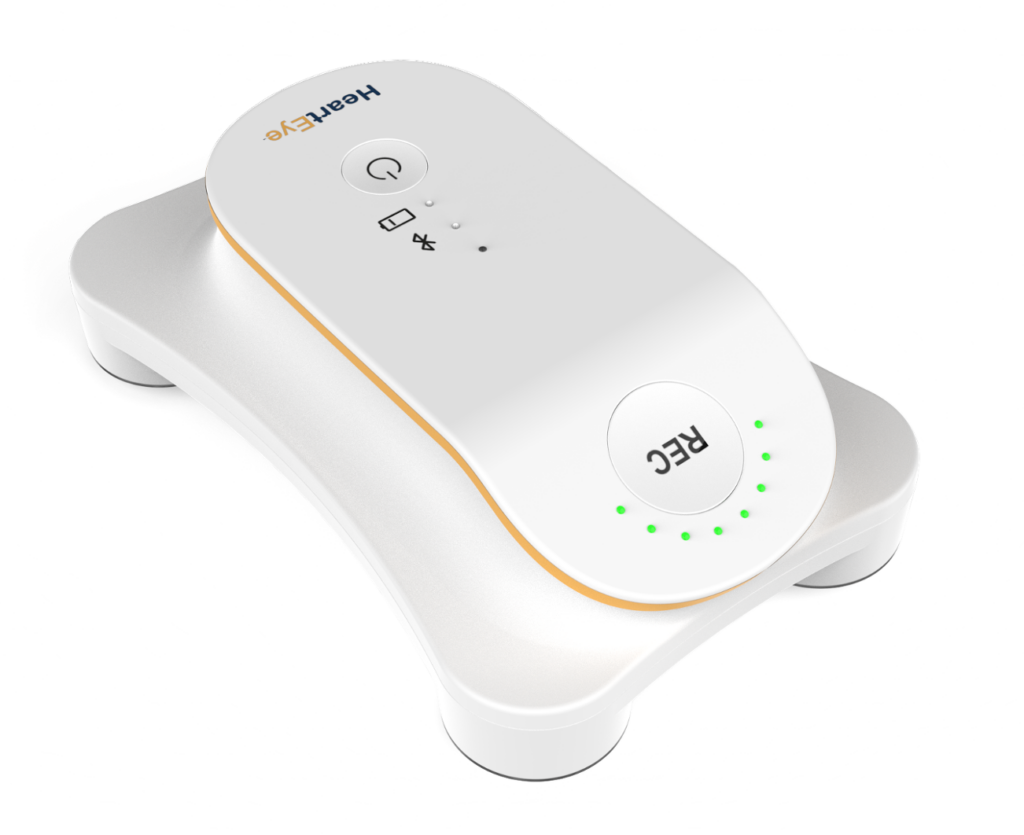Revolutionary mobile device for ECGs
HeartEye is a technology startup in the medical sector. The introduction of their medical app required a carefully described development process conforming to CE standards. Polteq described, set up and transferred the testing process for HeartEye, meeting the strict standards that apply in the medical industry.
HeartEye is developing a mobile device that generates hospital-quality heart films, made by local physicians and patients at any location. Currently, these ECGs (Electrocardiograms) are mainly performed by specialists in the hospital, which is a time-consuming, costly process and always involves a snapshot in the hospital.
The solution includes a recorder and a mobile app. Digital agency Q42 developed the app, including bluetooth connection to the hardware and the API to the portal for sharing with a cardiologist. The testing process has been entrusted to Polteq. The challenge for Polteq was to develop a testing process that on the one hand meets all the requirements from the standards and on the other hand fits a dynamic startup.
Testing process and strategy
Starting point was the review of the development process, as described and followed by Q42 and HeartEye. Then the CE 62304 norm was translated to the context of HeartEye. This revealed components needed to secure the testing process:
- Defining system configuration items
- Creating a description of the testing process
- Updating the description of the Software Development plan.
- Updating the risk inventory
- Setting up Jira plug-in Xray test management
- Introducing the testing process (demonstrate, participate, do it yourself) for multiple test types
- Securing testing during an Agile sprint
The testing process described in the IEC 62304 standard specifies what verification and validation should be done within a software life cycle (from concept and development to deployment and end-of-life). The standard prescribes what levels of testing are required, such as unit, integration, regression and system testing. Polteq itself has added acceptance testing (to determine if the system is ready for release) and release testing (to verify that the system has been correctly released to production).
The standard requires that each test be reviewed, can be traced back to the requirements and demonstrate how risks are covered. This ensures complete transparency about what tests have been performed and what the results are.
The HeartEye system is a medical device consisting of several components: a native mobile app for both iOS and Android hardware, OS versions, Bluetooth hardware, recorder hardware with proprietary firmware, an ECG calculation module, a pdf generator and an API for sharing the generated ECG data. The whole system is new and should be easy to use and trusted by medical personnel. The data is securely shared and used by cardiologists at the hospital.

Certification
Moving forward, work is underway to further develop a new version of the hardware, expand app functionalities and prepare and conduct user testing and clinical trials. All of these steps are aimed at achieving CE certification for the HeartEye system.
Dutch Interactive Award (DIA).
Emerce Digital Marketing organizes the “Dutch Interactive Awards” annually with Dutch Digital Agencies. These are the awards for the very best interactive online work by Dutch agencies. The awards have been presented annually since 2010. This year, HeartEye and Q42 were jointly nominated for the Dutch Interactive Awards (DIA) in the “Digital for Good” category.
The following services were used for this case:
“Polteq quickly turned the complex requirements for medical software into a clear test plan as well as a practical implementation that we can proceed with ourselves. As a startup, this allows us to benefit from Polteq’s in-depth expertise, while doing as much as possible ourselves to control costs.”
Heleen Willemsen, CTO HeartEye



